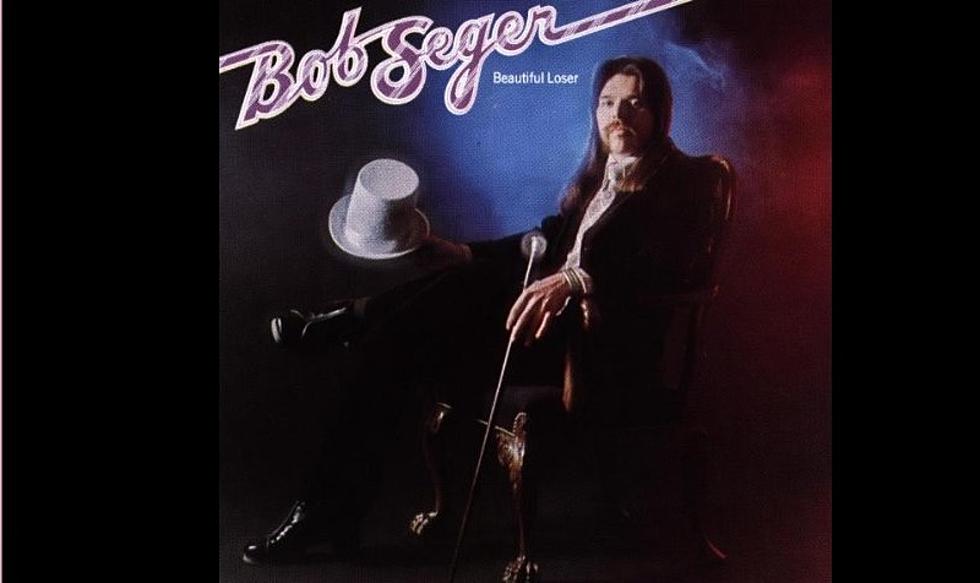
How the Stooges’ Debut Set the Stage for Punk
The Stooges' 1969 self-titled debut album opened the door for everything loud, hard and heavy that followed. These four misfits from Detroit took rock to the edge, pushing the boundaries with every note.
Frontman Iggy Pop (then going as Iggy Stooge) was joined by Dave Alexander on bass, Ron Ashton on guitar and his brother Scott Ashton on drums. Together, the Stooges created a mayhem all of their own, and a style that would be copied for decades to come.
Originally calling themselves the Psychedelic Stooges, they were the "little brother" band to the MC5. In fact, it was the MC5 who brought their pals to the attention of Danny Fields from Elektra Records, the short-lived home of the MC5. Fields had originally flown in from New York City to check out the MC5 for possible signing. "I was overwhelmed," Fields recalled in the liner notes to The Stooges reissue. MC5 guitarist Wayne Kramer suggested that Fields check out the Stooges, as well.
"It was love at first sight," Fields added. "The MC5 were a great rock 'n' roll machine, but with the Stooges, you went sailing right over the cliff of modern musical taste into places you'd never been before. It was like they were making music I'd wanted to hear my whole life." Elektra only asked that the band drop "Psychedelic" from its name – which, in retrospect, certainly makes sense.
Sessions began in April 1969 with producer John Cale, the former Velvet Underground member – and an inspired choice. He had a knack for capturing this wild ensemble on tape as they furiously created. Upon entering the studio, the Stooges had admitted to only having a few songs together. Fast-forward just 24 hours later, however, and they had the rest of the album written and ready to go. By Aug. 5, 1969, it was on store shelves.
Listen to the Stooges' 'I Wanna Be Your Dog'
The Stooges gets underway with one of the most ferocious album openers ever in "1969." From the wah-wah'd guitar intro to the heart-pounding Bo Diddley beat that steps in, the Stooges are off and running. "It's 1969 OK, all across the U.S.A. It's another year for me and you. Another year with nothin' to do," Pop sings, addressing eternal teenage frustration. These feelings would come to a boiling point in the '70s, giving birth to all that was punk rock. Speaking of which, the raw power and emotion that charged '1969' is dosed even higher on the next track. "I Wanna Be Your Dog" may just be the ultimate in young, loud and snotty rock. These guys could summon enough attitude to run the engines of most other bands out there at the time.
"We Will Fall" closes the first side, carrying the only link to their ditched Psychedelic prefix. For 10-plus minutes, they roll out a doom-laden mantra ("Oh gi ran ja ran ja ja ran") atop music more in line with the experimental side of Cale's Velvet Underground and the Doors. Amid its hypnotic swirl, Iggy comes in with serrated, poetic vocals, but the band never alter the mood. It's a hypnotic and interesting side trip amidst the album's brutal assault but, ultimately, a path the Stooges took just this one time.
Side two kicks off with "No Fun," a classic anthem for a bored generation. The simplistic riff and lyrics were custom made for each other, and Pop's vocal delivery walks a high-tension wire. "Real Cool Time," "Ann" and "Not Right" wrap up The Stooges, each with its own distinct raunch and flair. "Ann," in particular, is a haunting masterpiece that finds Iggy digging deep into his heart and soul for an impassioned vocal that would rival any from Jim Morrison.
Listen to the Stooges' 'We Will Fall'
The music is so simple that it's almost hard to fathom – especially in the era of Jimi Hendrix, Cream and Led Zeppelin, when musicianship was seen as key. These, well, stooges, were reverting back to the neanderthal age of rock, but with a modern edge. They had more in common with the Troggs, for example, than they did with, say, Crosby Stills & Nash, who had also released their debut earlier that same year. The approach they take throughout the album is full of kinetic energy, upping Morrison's ante, while the band in some cases borrows the mood of the Doors' music – only to run it through some high-voltage machine, peeling off any pretense.
Arriving so long before its time, The Stooges album was not welcomed in all corners. Even those who approved often did so with a curious kind of hesitation. "Their music is loud, boring, tasteless, unimaginative and childish," Edmund Ward wrote in the Oct. 18, 1969, issue of Rolling Stone, before admitting, "I kind of like it."
Also of note is this comment from Ward: "It is certainly an understatement to say that they have a marked lack of pretension." This was something that flew in the face of a good chunk of rock music at the time. Less, the Stooges seemed to be arguing, sometimes really is more.
Well, except for the volume level. Thankfully, the Stooges always had their lean, proto-punk turned up as loud as it would go. And in a few years, hundreds of bands would sound just like this.
See the Stooges Among the Top 100 Albums of the '70s
More From US 103.1 FM








![‘The Ballad of John And Yoko’ & Me On Their Fiftieth [VIDEO]](http://townsquare.media/site/86/files/2019/03/john-and-yoko-lic-insert1.jpg?w=980&q=75)

